Documentation

“The Duration of the World as a Continuous Melody” – Anthony Nestel
In his lecture on sonification titled Sonification for Sharing Auditory Perspectives on Data (2020), dr. Thomas Hermann reminded us of the complexity of our human listening system. According to Hermann, “the benefits of using the auditory system as a primary interface for data transmission are derived from its complexity, power, and flexibility.” (Hermann, Hunt and…
Read more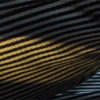
“Utilitarian Sounds: a Lecture by Dr. Thomas Hermann” – Angelo Zinna
In the opening of his lecture ,“Sonification for Sharing Auditory Perspectives on Data”, dr. Thomas Hermann described sounds as a tool to understand “what is hidden behind the numbers.” While data and statistics have traditionally been represented through visual renditions (such as graphs), Hermann argued that there are a variety of situations in which sound…
Read more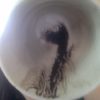
“The different reader, decoder, translator, interpreter and diagnostician” – T.P.
A medium does not mean, but is. Following McLuhan’s cliché aphorism, let’s not take media for it’s ablative function; that of media-as-vessle “by means of which” a *thing* is mediated. Instead of understanding media as about the world, the proposition, following McLuhan, is to consider media as the world itself. The rain is the falling,…
Read more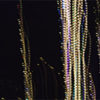
“Auditory Meaning-Making” – Christl de Kloe
In this fourth Transmission in Motion seminar, Dr. Thomas Hermann presented us with the potential of auditory representation of data (see also (Hermann, Hunt, and Neuhoff 2011)). Hermann discussed for example how it might be easier, for those who have trouble expressing emotions or to express certain feelings, to do so through sounds. Or how…
Read more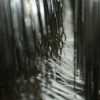
“Disruptive Forces of Sonification” – Aishwarya Kumar
In her artist talk at the conference – Magical Thinking: Towards a Future Worth Living organized by Sonic Arts Festival 2020, Anja Kanngieser, political geographer and sound artist describes the process of attunement as a way to honor specificities. Their context was a collection of soundscapes presented as embodied climate reality in Papua New Guinea…
Read more
“The Human Subject and a Progressive Environmental Future” – Christl de Kloe
Carl Lavery asks in his Introduction: Performance and Ecology – What Can Theatre do? (2016), the question “what theatre and performance might be able to do ecologically” (Lavery 2016, 229). Two premises are discussed for this question. The first is that the ecological contribution of theatre is not to be found in explicit messages but…
Read more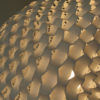
“The Theater as an Extension of the Mind” – Angelo Zinna
Listening to Professor Carl Lavery speak about both the concept of “theater ecology” and the process of composing a book that would not only present the topic but create a new type of subject entirely, was a powerful reminder of how creative and academic practice can be unified to bring a meaningful project to completion….
Read more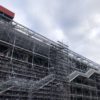
“Infrastructure of theatrical tools” – Freja Kir
Following a focus on diffraction through sound and mathematics, this second part continues the series of short blog posts reflecting on current perspectives for measuring transmissions in motions. The writings specifically draw on references and inspiration shared from the seminar of the same title hosted by the University of Utrecht during the first half of…
Read more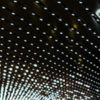
“Poiesis in ecotheatre” – Aishwarya Kumar
Instytut B61, positioned at the intersection of science and contemporary art, brings together artists, scientists, and designers to create theatre that performs the theatre of astronomy. In 2017 they performed Evolution of Stars, a set of 13 audio-visual and interactive theatre performances that divulged the life of a star. Written and directed by an astrophysicist…
Read more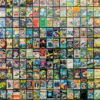
“Games of Ecology?” – Dennis Jansen
During last year’s seminar series, I wrote a blog post on the increasing attention being paid to “ecological matters” in game studies. The ecological themes in Carl Lavery’s recent TiM lecture and broader work offer a good opportunity to revisit that topic and expand on some of the topics raised in that earlier post. If,…
Read more
